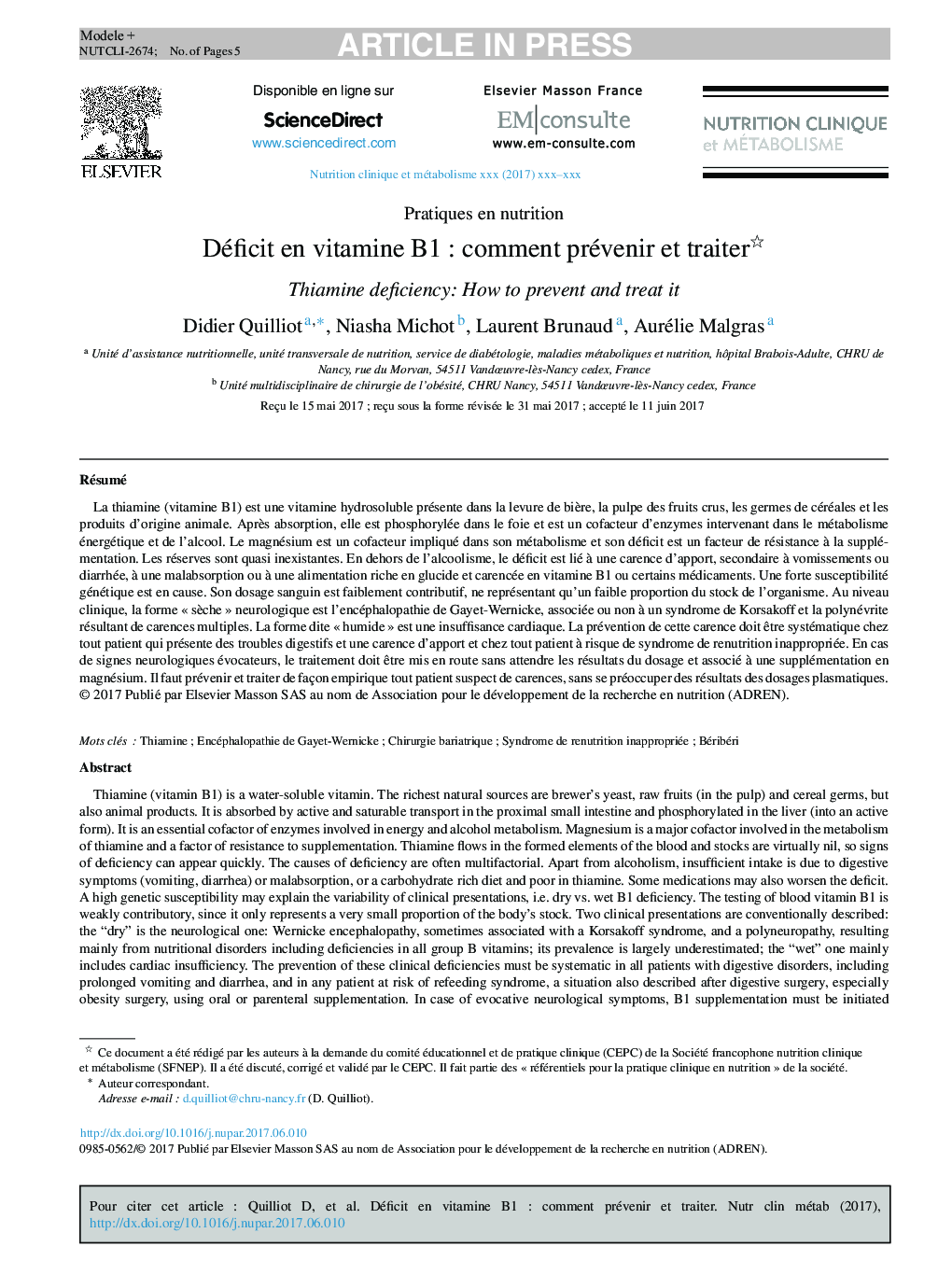| Article ID | Journal | Published Year | Pages | File Type |
|---|---|---|---|---|
| 5572894 | Nutrition Clinique et Métabolisme | 2017 | 5 Pages |
Abstract
Thiamine (vitamin B1) is a water-soluble vitamin. The richest natural sources are brewer's yeast, raw fruits (in the pulp) and cereal germs, but also animal products. It is absorbed by active and saturable transport in the proximal small intestine and phosphorylated in the liver (into an active form). It is an essential cofactor of enzymes involved in energy and alcohol metabolism. Magnesium is a major cofactor involved in the metabolism of thiamine and a factor of resistance to supplementation. Thiamine flows in the formed elements of the blood and stocks are virtually nil, so signs of deficiency can appear quickly. The causes of deficiency are often multifactorial. Apart from alcoholism, insufficient intake is due to digestive symptoms (vomiting, diarrhea) or malabsorption, or a carbohydrate rich diet and poor in thiamine. Some medications may also worsen the deficit. A high genetic susceptibility may explain the variability of clinical presentations, i.e. dry vs. wet B1 deficiency. The testing of blood vitamin B1 is weakly contributory, since it only represents a very small proportion of the body's stock. Two clinical presentations are conventionally described: the “dry” is the neurological one: Wernicke encephalopathy, sometimes associated with a Korsakoff syndrome, and a polyneuropathy, resulting mainly from nutritional disorders including deficiencies in all group B vitamins; its prevalence is largely underestimated; the “wet” one mainly includes cardiac insufficiency. The prevention of these clinical deficiencies must be systematic in all patients with digestive disorders, including prolonged vomiting and diarrhea, and in any patient at risk of refeeding syndrome, a situation also described after digestive surgery, especially obesity surgery, using oral or parenteral supplementation. In case of evocative neurological symptoms, B1 supplementation must be initiated without delay, combined with a magnesium supplementation, and without waiting for the blood test results. The absence of B1 toxicity, even with large doses, and the imperfection of biological markers encourage the preventive and empirical treatment of all patients suspected of thiamine deficiency, without worrying about blood level.
Related Topics
Health Sciences
Medicine and Dentistry
Gastroenterology
Authors
Didier Quilliot, Niasha Michot, Laurent Brunaud, Aurélie Malgras,
